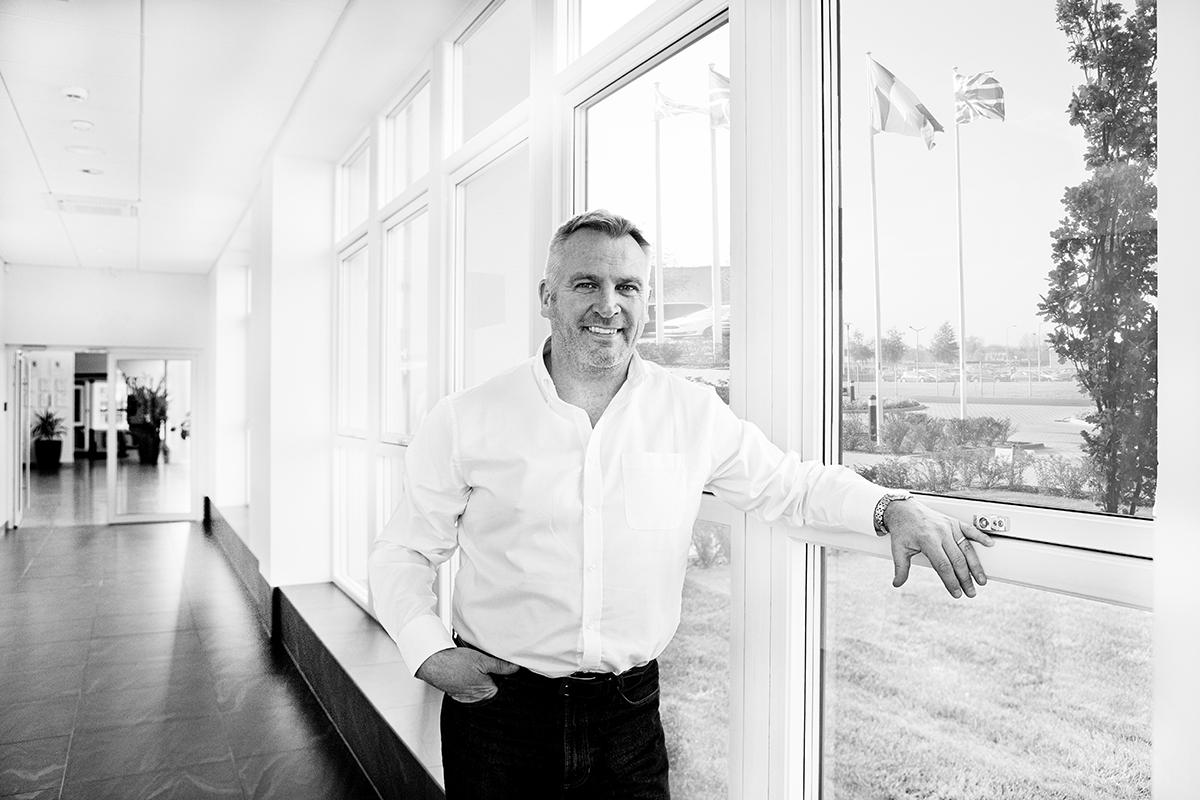
Despite the strong economic headwinds, Livingston-based timber windows provider NorDan UK Ltd has grown by 85% in five years. Here, MD Alex Brown explains why sustainability and performance is increasingly driving decision making.
NORDAN UK Ltd has made strong progress over the last five years. Our turnover increased by 85% from 2016 to 2021. 2022 is on course to be another record year, both in terms of turnover and profitability, with 35% growth year-on-year.
What makes this growth particularly satisfying is that it has been achieved in the face of particularly challenging economic headwinds.
I don’t think anyone could have predicted the scale of the challenges that have faced the UK construction industry over the last five years.
European supply chain issues have arisen, and huge material price spikes have been challenging as the markets react to Covid-19 and processes post Brexit. The energy crisis and war in Ukraine have only served to further compound these issues.
So, with NorDan is on course for yet another record year both in terms of turnover and profitability, what has been the key to our success?
Adjusting the sails
During Covid I often said we would not return to business as usual, but preparing for whatever is thrown at us next, and that there is no room for complacency in business, so we’ve made some big changes to meet a rapidly changing world.
It has therefore been natural to ‘adjust the sails’ as we continue to navigate our way through challenging times.
We’ve improved our business structure and key personnel, at the same time as investing in new business systems and procedures to further strengthen our customer service platforms, ensuring that we’ve laid the necessary foundations for further growth.
I am now entering my 14th year at managing director of NorDan UK, and during that time I have seen the NorDan Group grow from 7 to 12 European factories, and to a Group turnover of over £500 million.
Internally, I feel that we’re ready to face whatever is thrown at us next, and the last five years has shown us that anything is possible.
Performance and sustainability
A number of external factors have also been working in our favour. NorDan placed sustainable product development at the heart of its business from day one, and in recent years a shift towards making long-term, sustainable and commercially viable choices for buildings has begun to impact specification decision-making.
Many are now choosing quality, high-performance, low-carbon products and materials, that not only help a building to perform better, but also have a significantly lower environmental impact.
Low whole life carbon and cost
Over 300 local authorities have now declared a climate emergency and are closely examining their carbon outputs, whilst many UK construction companies, private developers and social housing providers have made the commitment to calculate and reduce the whole life carbon content of their buildings.
This has led many people to our products. Firstly, because they are manufactured from over 90% timber, making their carbon content some of the lowest available on the market today, and secondly because they offer a lifespan of 60 years minimum (around three times that of PVCu).
With the additional benefit of the products being virtually maintenance free during their lifespan, the whole life cost of our products is also impressive, crucially making them a sensible commercial decision.
This has led to us becoming the supplier of choice to a number of private build-to-rent developers, as well as social housing providers.
Investing in EPDs
All of these factors combined make our whole life carbon figures impressive reading, and this data is available in our Environmental Product Declarations (EPDs), which we invested in for our core product range in 2014.
EPDs are third party reports that ensure our customers can make accurate comparisons between the carbon content of different materials. This gives clients, architects, specifiers and contractors the data they need to make better decisions.
We remain the only timber fenestration company to have made this commitment, and we refresh and add new declarations as our range evolves through continuous innovation.
The impact of The Future Homes Standard
Recent changes to building regulations are also contributing to our success. In June this year, as an interim step towards The Future Homes and Buildings Standard, the allowable u-value for glazing products was reduced from 1.6W/m2K to 1.2W/m2K, a change that has given us a leg up in the market.
Why? Because, in general, PVCu, aluminium and composite windows can only achieve a u-value of 1.2 by being triple glazed, whilst NorDan’s windows can achieve this figure with just double glazing, meaning less carbon and less cost.
It is anticipated that this u-value figure will be further reduced to 0.8W/m2K in 2025 when The Future Homes and Buildings Standard is fully implemented. For many window manufacturers this figure is simply unachievable. Fortunately, this is not an issue for NorDan, as our products can achieve a u-value as low as 0.7 with triple glazing.
With the current turmoil in Number 10 and recession looking inevitable, the question is ‘will sustainability remain high on the agenda?’. The simple answer is that we don’t know. However, I feel that the foundations are set, the sails are adjusted and I am looking forward to 2023 and beyond.








